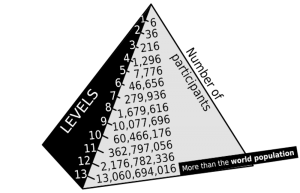Several banks, including TD Bank, HSBC, and Société Générale, have reached a $7 billion settlement in a Ponzi scheme case.
The Ponzi scheme in question involved the sale of fraudulent securities by a Florida-based attorney, Allen Stanford, who promised investors high returns on money invested in a pyramid scheme allegedly aided and enabled by all banks in the suit. The scheme eventually collapsed, resulting in losses of over $2 billion for stakeholders.
The banks were accused of facilitating the scheme by providing services to the attorney and his companies despite being aware of the fraudulent nature of the investments.
Stanford was convicted in 2012 for selling fraudulent certificates of deposit from his supposed “off-shore” bank, Stanford International Bank. He is now serving a 110-year prison sentence.
TD Bank, HSBC, and Independent Bank Group were all scheduled to go to trial on March 6, 2023, but have opted to settle out of court. HSBC has agreed to pay $40 million, Independent Bank Group agreed to pay $100 million, and TD Bank will pay $1.2 billion to settle the suit. Société Générale decided to settle the case two weeks ago for $157 million. The settlement is one of the largest ever in a Ponzi scheme case.
However, despite settling out of court, none of the institutions admitted to knowingly abetting Stanford in this process. Investors in Stanford’s Ponzi scheme, in their lawsuit against the banks, alleged that the banks knew of the fraud because of the excessive number of large wire transfers and shipments of investor checks being shipped overseas.
The settlement is a monumental one, according to PYMENTS, because it marks a significant step in holding financial institutions accountable for their role in illegal activities. In the past, banks have often been able to avoid liability by claiming that they were unaware of the illicit activity taking place. However, with effective regulation and oversight, victims of the scheme were at least partially compensated for their losses.





















